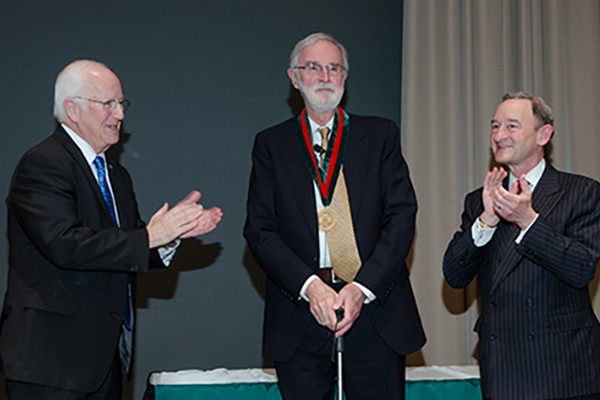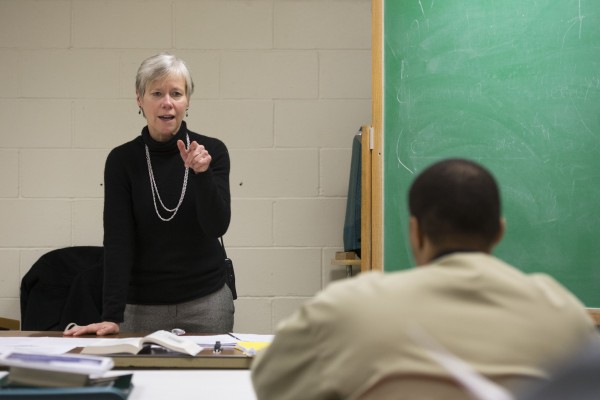Raichle named Wolff Distinguished Professor of Medicine
Marcus E. Raichle, MD, has been named an inaugural Alan A. and Edith L. Wolff Distinguished Professor of Medicine at the School of Medicine. A professor of radiology, psychology, biomedical engineering, neurobiology and neurology, his many honors include the 2014 Kavli Prize for Neuroscience.
St. Louis Symphony musicians present ‘Bosnian Journeys: Generations’ March 3
Since the mid-1990s, thousands of Bosnian refugees have settled in South St. Louis. Today, “Little Bosnia’ includes more than 60,000 people — the largest Bosnian community outside Bosnia. On Tuesday, March 3, the Department of Music and musicians from the St. Louis Symphony will explore their stories with a free concert titled “Bosnian Journeys: Generations.”
Skinker Boulevard brighter thanks to new pedestrian lamps, improved street lights
Things are looking much brighter on Skinker Boulevard between Forest Park Parkway and Delmar Boulevard, thanks to Washington University’s installation of new pedestrian-scale lighting and improvements to the street lighting.
Paying it forward: Washington University, Wells Fargo Advisors partner for a better world
A unique, transforming partnership between Washington University in St. Louis and Wells Fargo Advisors will be celebrated in a special event called “Innovate, Accelerate, Transform: Investing in People, Businesses and Communities,” which begins at 3:30 p.m. Tuesday, March 3, in Knight Hall on the Danforth Campus. The event is free and open to the entire university community.
‘Flicker: Your Brain on Movies’
Why do so many of us cry at the movies? Why do we flinch when Rocky Balboa takes a punch? What’s really happening in our brains as we immerse ourselves in the lives being acted out on screen? These are the questions that Washington University in St. Louis neuroscientist Jeffrey M. Zacks, PhD, explores in his new book, “Flicker: Your Brain on Movies.”
Odysseus in Pacific
Higher education reduces recidivism rates by as much as half. Yet today, only a small fraction of U.S. prisoners have access to such programs. In the fall of 2014, University College launched the Washington University Prison Education Project, a three-year pilot program supported by a grant from the Bard Prison Initiative.
Gut microbes targeted for diagnosis, treatment of childhood undernutrition
Guided by the immune system, researchers have identified types of gut bacteria in both healthy and undernourished children in Malawi that are linked to nutritional health and that have diagnostic and therapeutic implications for childhood undernutrition.
For the Sake of All partners with St. Louis County Library
For the Sake of All, the mulitdisciplinary project aimed at improving the health and well-being of African Americans in St. Louis, has partnered with the St. Louis County Library system to help further promote its recommendations.
Battle of the Boot: University joins regional shoe drive
A university-wide shoe drive, Battle of the Boot, is underway that pits Washington University in St. Louis against other regional universities to raise money for water wells in impoverished countries. Hosted by the Solea Water Project (formerly Shoeman Water Projects) in conjunction with the Office of Sustainability, Battle of the Boot is a shoe drive that also includes Fontbonne University, University of Missouri-St. Louis and Saint Louis University.
Brown School research influences new St. Louis housing laws
Two new laws in St. Louis will expand housing options for Section 8 renters in the city. Christine Ingrassia of the Board of Aldermen sponsored the measures, which were influenced by recent research from Molly Metzger, PhD, assistant professor at the Brown School at Washington University in St. Louis.
View More Stories


